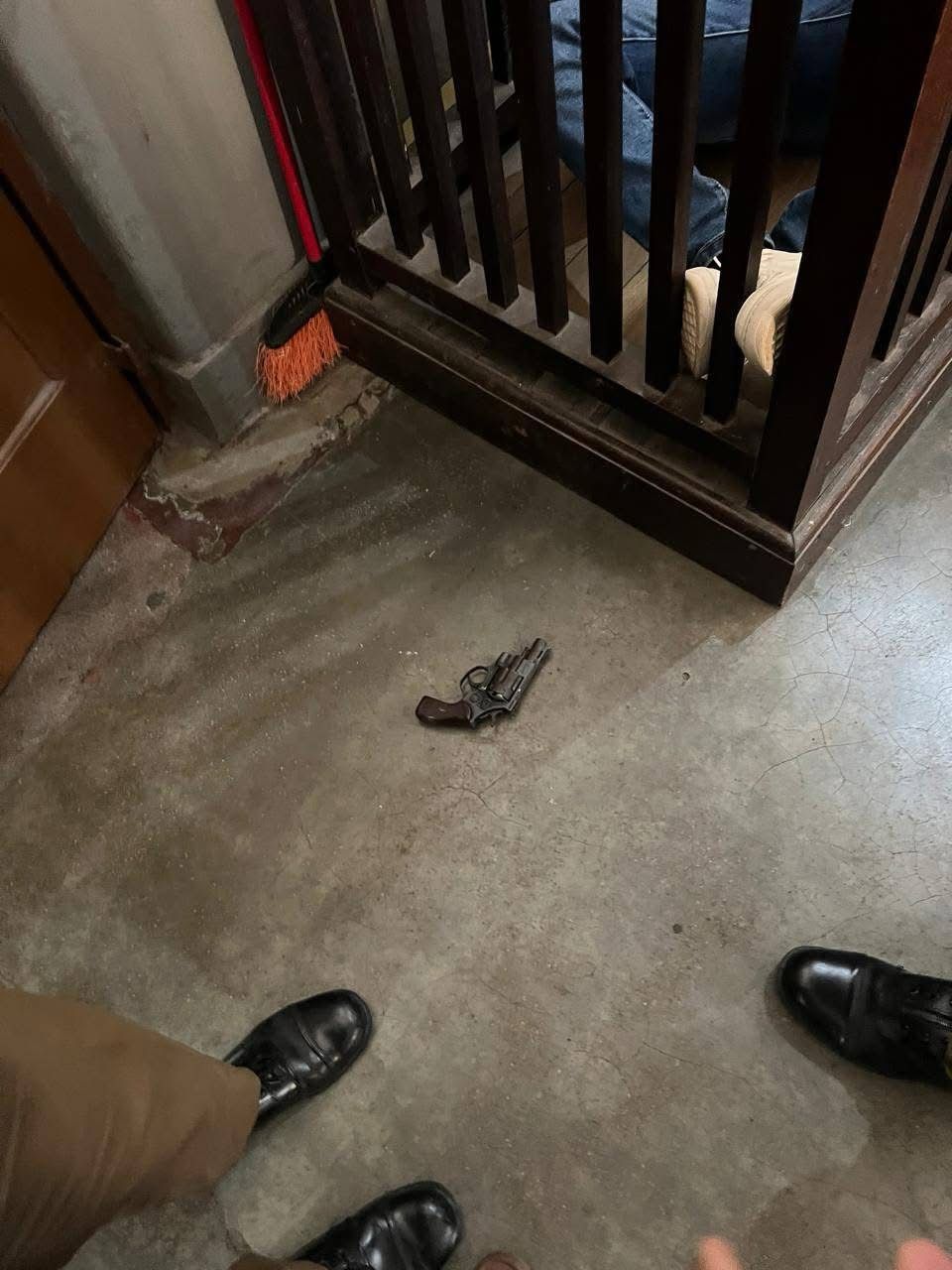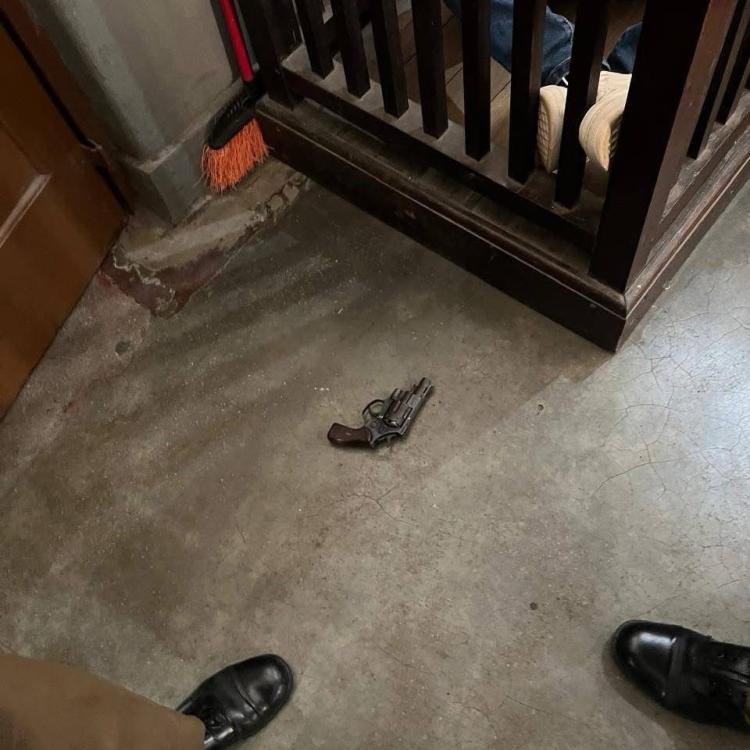
The scene after a courtroom assassination earlier this week.
Sri Lanka is experiencing a surge in organised crime and targeted assassinations, with the government claiming that recent violence aims to undermine fresh investigations into the 2019 Easter Sunday bombings.
At a special media briefing, D.W.R.B. Seneviratne, Secretary to the Ministry of Public Security, stated that intelligence agencies had identified attempts to sabotage the newly reopened investigation into the Easter Sunday attacks that killed more than 270 people in 2019.
“Intelligence agencies have identified attempts by certain groups to sabotage the investigations. An inquiry has been launched into this matter. I want to make it clear—we have identified these individuals, and the law will be enforced strictly against them,” he said.
The government’s warnings came amid a high-profile assassination inside a Colombo courtroom, which has raised concerns about the country’s security situation.
On 19 February 2025, Sanjeewa Kumara, an alleged underworld figure known as ‘Ganemulla Sanjeewa,’ was gunned down in broad daylight inside the Hulftsdorp Court Complex. The gunman entered the courtroom disguised as a lawyer and executed Sanjeewa at point-blank range.
The assassin was later identified as 34-year-old Mohamed Azman Sherifdeen, a former member of the Sri Lankan Army Commando Regiment. He was arrested by the Special Task Force in Puttalam while attempting to flee.
Video footage aired by Derana Television showed the assassin being assisted by a female accomplice, later identified as Pinpura Devage Isara Sewwandi, who is suspected of bringing the revolver into the courtroom. Police believe she has links to drug trafficking and planned the murder in collaboration with an underworld figure based in Dubai.
Authorities are now conducting a manhunt for Sewwandi, while continuing investigations into Sherifdeen’s potential involvement in other assassinations, including a double murder in Mount Lavinia.
Following the assassination, Seneviratne suggested that criminal gangs based overseas are orchestrating a wave of violence in Sri Lanka.
“Most of these are done by gangs now resident in neighbouring countries,” Seneviratne claimed, adding that the killings appear to be part of a deliberate effort to sabotage high-profile criminal investigations, including the revived Easter Sunday probe.
Opposition Leader Sajith Premadasa has also raised concerns, alleging that criminal masterminds are operating from abroad. According to the Sri Lankan Police Department, INTERPOL Red Notices have been issued for 188 criminals, including 63 linked to underworld activities, murders, and ransoms.
Meanwhile, crime rates continue to rise:
• 17 shootings and 5 stabbings reported since January.
• 58 organised criminal gangs with 1,400 active members identified.
• A 6-year-old girl and her father shot dead in Middeniya while travelling on a motorcycle.
At a government press conference, Acting Inspector General of Police (IGP) Priyantha Weerasuriya revealed that 11 members of the police and military had been arrested for involvement in organised crime.
The police have seized a large cache of illegal firearms, including:
• 13 T-56 assault rifles
• 15 revolvers
• 21 pistols
• 805 homemade gunpowder rifles
Authorities have set up a dedicated hotline (1997), offering a Rs. 1 million reward for information leading to the recovery of T-56 assault rifles.
However, the police force itself remains under scrutiny, particularly following the deaths of two criminal suspects in custody. Officials claimed the men were shot while attempting to seize police weapons, but critics have raised concerns over extrajudicial killings.
Earlier this month, Sri Lankan president Anura Kumara Dissanayake admitted that "Sri Lanka is a criminal state” and candidly spoke of how soldiers were involved in committing murders with the protection of the military.
Sri Lanka is a Criminal State, proclaims President @anuradisanayake confirming fears of many rights watchdogs about military members involvement in extra judiciary killings.
— LankaFiles (@lankafiles) January 20, 2025
"There are a few in the military who are hired to go out and shoot to kill and come back to the camp." pic.twitter.com/jAn6Iywmv0
Dissanayake vowed to reopen the Easter Sunday bombing investigation last September, following pressure from Malcolm Cardinal Ranjith, head of the Catholic Church in Sri Lanka.
The Cardinal has long accused previous governments of covering up the attack, blaming former Presidents Gotabaya Rajapaksa and Ranil Wickremesinghe for failing to conduct a proper investigation.
Following intense public pressure, former President Maithripala Sirisena was found guilty of negligence by a high-level probe and ordered to pay Rs. 100 million in compensation to the victims’ families. The defence establishment was also found guilty of ignoring prior intelligence warnings from India, despite clear indications of an impending attack.

